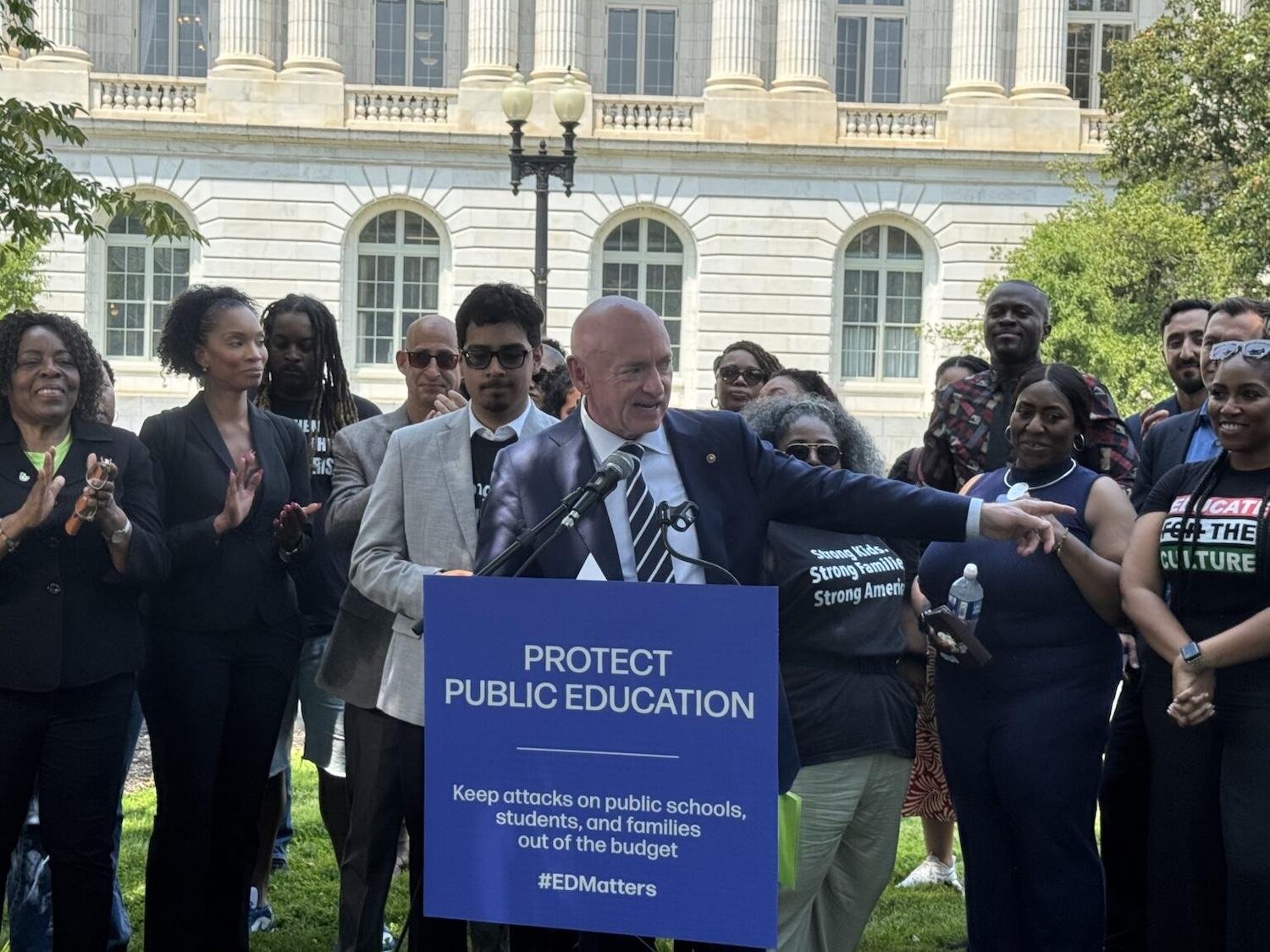arizona
Mark Kelly Denounces GOP Education Cuts and $5B Voucher Plan as ‘Disastrous’ at D.C. Rally

U.S. Sen. Mark Kelly has rallied with educators and concerned citizens in opposition to proposed education cuts by congressional Republicans. The Arizona Democrat condemned the GOP’s “big, beautiful bill,” which aims to reduce federal spending by billions to finance tax cuts championed during President Donald Trump’s tenure.
At the center of the criticism is a private school voucher initiative embedded in the House’s reconciliation package. This proposal would allocate $5 billion annually in tax credits for donations supporting private and religious school scholarships. Kelly declared, “They want to play by different rules. This is not a good idea — it’s a horrible idea.” He emphasized that Arizona’s public education quality has deteriorated over the past decade.
Using the reconciliation process, Republicans aim to pass the legislation through Congress with simple majority votes, circumventing the traditional 60-vote requirement in the Senate. The House narrowly approved its version of the bill in May, which is now facing amendments in the Senate, particularly regarding higher education.
Advocacy groups have also expressed outrage over cuts to Medicaid and the Supplemental Nutrition Assistance Program (SNAP) featured in the bill. Kelly underscored the necessity for accessible education support, stating, “We’ve got to make it easier for kids to get the support they need.”
The National Parents Union, along with Educators for Excellence and other organizations, organized a rally to voice these concerns. Keri Rodrigues, president of the National Parents Union, highlighted the collective discontent of parents and educators, stating, “This so-called ‘big, beautiful bill’ is a direct threat to our children’s future.” She asserted that reducing funding for public education does not benefit anyone.
Furthermore, Trump’s proposed budget for fiscal 2026 includes a $12 billion cut to the Education Department, reflecting a broader agenda to redefine the federal education role significantly.
On the Senate side, Republicans introduced a draft proposal for the reconciliation package, which aligns with some aspects of the House’s education provisions, including modifications to student loan repayment and the creation of a Workforce Pell Grant program. However, key differences exist, such as the Senate’s omission of measures that would raise credit hour requirements for maximum Pell Grant eligibility and changes to the “90/10 rule” for for-profit institutions.


















